All Stories
-
 Tech
TechSheets of tiny bubbles could bring a sense of touch to virtual reality
Shape-shifting films used in sleeves or other garments could provide tactile feedback that makes virtual realities feel more real.
-
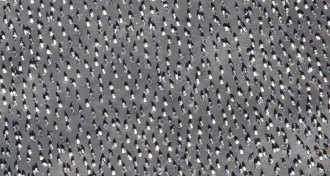 Animals
AnimalsIn a colony, king penguins behave like molecules in a 2-D liquid
Positions of king penguins in a breeding colony resemble molecules in a 2-D liquid.
By Dan Garisto -
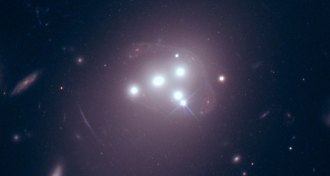 Astronomy
AstronomyDark matter isn’t interacting with itself after all
Hints that a distant galactic collision knocked dark matter askew fizzled with new observations.
-
 Environment
EnvironmentMicroplastics may enter freshwater and soil via compost
Compost is pinpointed as a source of plastic pollution, but environmental fate and effects unknown.
-
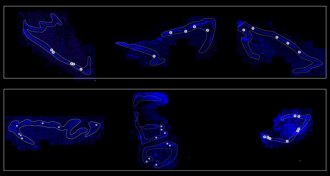 Neuroscience
NeuroscienceHuman brains make new nerve cells — and lots of them — well into old age
In humans, new neurons are still born in old brains, new research suggests.
-
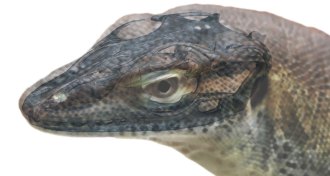 Paleontology
PaleontologyThis ancient lizard may have watched the world through four eyes
A lizard that lived 50 million years ago had both a third and a fourth eye.
-
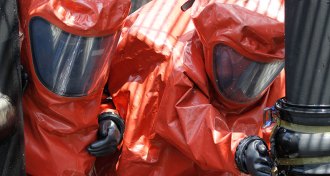 Materials Science
Materials ScienceToxic chemicals turn a new material from porous to protective
A new material switches from a comfortable, breathable form to a sealed-up, protective state when exposed to dangerous chemicals.
-
 Science & Society
Science & SocietyHow many scientists do you know in real life?
Editor in Chief Nancy Shute ponders about memorable scientists and how we can make it easier for people to connect to their work.
By Nancy Shute -
 Paleontology
PaleontologyReaders debate dinosaur designation and more
Readers had questions about the dino family tree and Venus' habitability.
-
 Animals
AnimalsFlying insects tell tales of long-distance migrations
Researchers are asking big questions about animal movements and pest control by tracking tiny insects in flight.
-
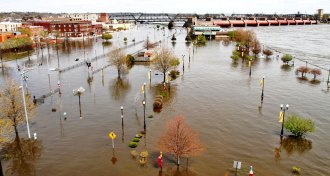 Earth
EarthEfforts to contain Mississippi floods may have made them worse
Intensive management of the Mississippi River has increased the size of its largest floods, suggests a new study.
-
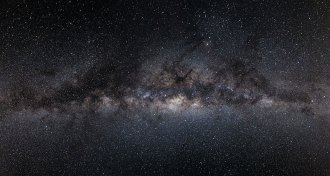 Astronomy
AstronomyA dozen new black holes found in Milky Way’s center
Twelve small black holes spotted in the Milky Way’s center suggest thousands more in the galaxy’s inner region.